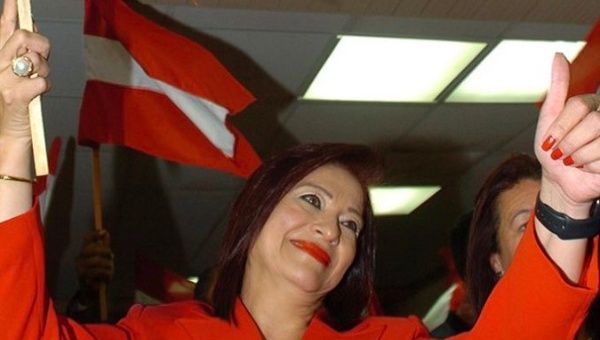Grim aftermath of Ethiopian battle offers rare clues about brutal war
By Giulia Paravicini and Maggie Fick
© Reuters/GIULIA PARAVICINI The Wider Image: Grim aftermath of Ethiopian battle offers rare clues of brutal war
SHEWEATE HUGUM, Ethiopia (Reuters) - Burned-out military vehicles, boxes of ammunition and the bodies of scores of federal troops were still scattered along the dirt road that runs through the Ethiopian village of Sheweate Hugum three weeks after the fighting subsided
.
© Reuters/GIULIA PARAVICINI The Wider Image: Grim aftermath of Ethiopian battle offers rare clues of brutal war
Beside them lay the leftovers of lives cut short: family photographs, school diplomas, Ethiopian flags. (for Photo Essay please click on: https://reut.rs/3kWbsOp)
What happened here in mid-June was just one battle in an eight-month war between Ethiopia's military and rebellious forces in the northern region of Tigray.
But, in a conflict largely waged far from the world's cameras, it sheds light on a key turning point.
© Reuters/GIULIA PARAVICINI The Wider Image: Grim aftermath of Ethiopian battle offers rare clues of brutal war
Nine days later, Tigrayan fighters regained the regional capital Mekelle, three hours' drive to the east, in a major setback for the central government. On the same day the city was retaken, Addis Ababa declared a unilateral ceasefire.

© Reuters/GIULIA PARAVICINI The Wider Image: Grim aftermath of Ethiopian battle offers rare clues of brutal war
Reuters spoke to two captured Ethiopian army officers, two leaders of the rebellious Tigray People's Liberation Front (TPLF) and three residents of Sheweate Hugum to get a picture of what happened in the village between June 17-19.
Fighting broke out as federal troops were making advances in the area, according to Debretsion Gebremichael, head of the TPLF. Tigrayan forces counter-attacked, he said.
On the other side, Colonel Hussein Mohamed said he commanded 3,700 soldiers from the army's 11th division at Sheweate Hugum. He said at least 100 government soldiers died and 900 were captured over three days of fighting in the village.
Reuters interviewed Hussein at a jail in Mekelle, where a journalist saw hundreds of captured soldiers being held by the TPLF.
"There were a lot of dead people on both sides," said Hussein, his gold tooth glinting as he chain smoked.
Another Ethiopian officer in the cell, who asked not to be named, said heavy losses among government troops around Sheweate Hugum helped pave the way for Tigrayan forces to retake Mekelle
.
© Reuters/GIULIA PARAVICINI The Wider Image: Grim aftermath of Ethiopian battle offers rare clues of brutal war
Reuters could not independently verify the accounts of the fighting at Sheweate Hugum. Both officers were interviewed without the presence of guards, and the men said they were speaking voluntarily.

© Reuters/GIULIA PARAVICINI The Wider Image: Grim aftermath of Ethiopian battle offers rare clues of brutal war
Spokespeople for the Ethiopian military, the prime minister's office and a government taskforce on Tigray did not return calls or messages seeking comment on what happened in Sheweate Hugum in mid-June and on the fate of any prisoners.
Debretsion, speaking via satellite phone, declined to comment on TPLF casualties beyond saying some were killed but that they did not number in the "thousands".
Reuters did not see the bodies of TPLF fighters in and around the village.
LAST STAND
Sheweate Hugum was largely abandoned when Reuters visited on July 10. Only a few residents remained, holding shawls to their faces to keep out the stench from the bodies.
Two residents said some Tigrayan fighters had been buried in local churches, but were unclear about numbers. The bishop of Mekelle had no information on casualties.
Tiebei Negash, 60, wept as she recalled how she and some neighbours had buried her husband, who she said was a resident not involved in the conflict, and five Ethiopian army soldiers.
She said she didn't see the fighters who shot through her front door the night of June 17, killing her husband in his sleep before setting fire to their house, but added that they spoke the national Amharic language, not Tigrinya spoken by Tigrayans.
She expressed anger at the soldiers who deployed to Tigray in support of Prime Minister Ahmed Abiy's government, but understood they were following orders.
"I feel sorry for them because they died in this land that is not their home," she said. "They are human beings."
Fighting first broke out in Tigray in November when the government accused the TPLF of attacking military bases across the region - an accusation the group denied.
The government declared victory three weeks later when it took control of Mekelle, but the TPLF kept fighting and has since taken back most of the region, including its capital on June 28.
Ethiopian troops withdrew from most of Tigray in late June and declared a unilateral ceasefire on what the government said were humanitarian grounds when the TPLF retook Mekelle.
Leaders of the TPLF derided the truce and said it was intended to cover up federal army losses.
Tesfay Gebregziabher, logistics coordinator for around 6,000 Tigrayan fighters who he said fought at Sheweate Hugum, said he saw around 350 Ethiopian soldiers retreat into the village school during the fighting.
His troops surrounded the building and killed those who didn't surrender, he said during an interview in Mekelle. Reuters could not independently confirm his version of events.
In the two-room schoolhouse in Sheweate Hugum, Reuters saw more than two dozen bodies in Ethiopian military uniforms, including women, lying among upturned desks and charred books.
They were illuminated by rays of sunlight through bullet holes in the roof and door.
Open tins of food lay next to most of the bodies.
(Maggie Fick reported from Nairobi; Editing by Katharine Houreld and Mike Collett-White)

















